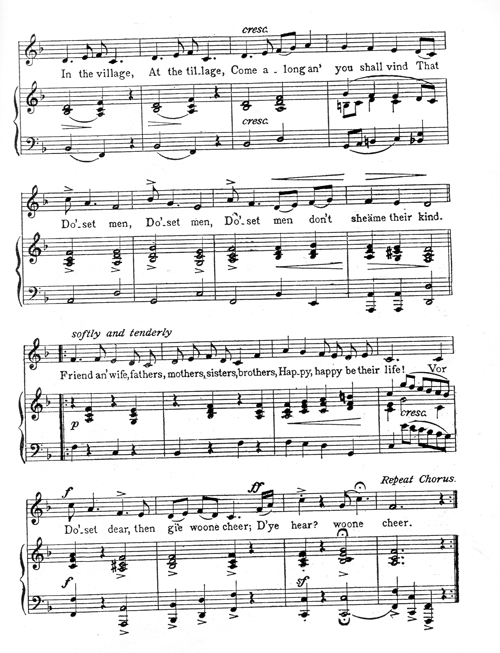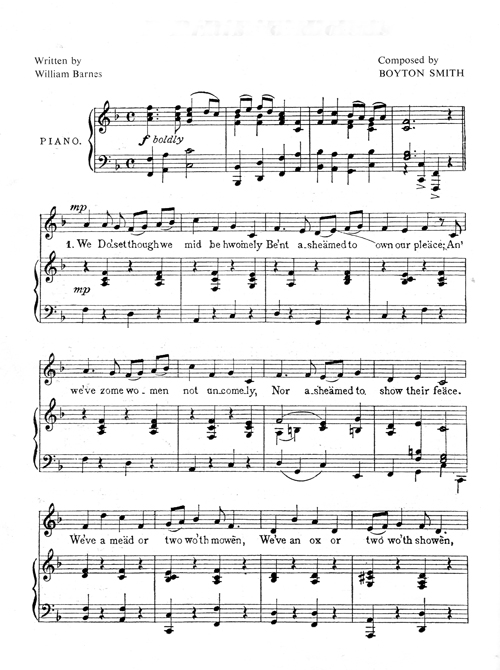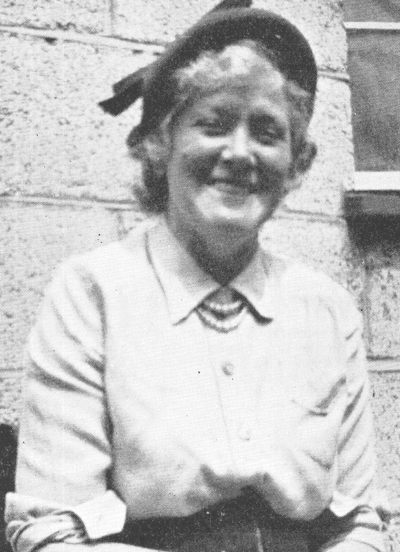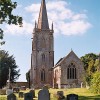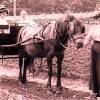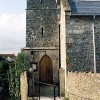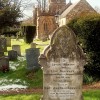On the 6th of August 1613 townsfolk gathering in the harvest from fields at Fordington near Dorchester were amazed and shocked to see flames and smoke rising to a great height above their county town. Church bells were also being tolled, but it seems these were barely audible above the roar of the fire and the population’s general panic.
Only a short while before, a candle-maker named Baker had accidentally spilt some boiling tallow at his workshop-home in the town, causing the hot liquid to set light to the timbers of his house. The summer of 1613 had been an exceptionally hot and dry one in England, and as most of the town houses and shops in Dorchester were constructed of wood and thatch the tinder-dry materials readily combusted. It therefore took no time at all for the conflagration at Chandler Baker’s to spread along and across the street. The rapid spread of the fire was further fanned by a strong easterly wind.
These two events or vignettes of town and country life were to presage what has been called the Great Fire of Dorchester, which preceded that of London by 53 years but which, when taking account of the relative sizes of the two population centres, was proportionately the more devastating. But the earlier of the two fires was not just a local catastrophe, estimated by the Dorset cleric and historian John Hutchins to have wiped out two-thirds of Dorchester, razing three hundred homes to the ground at a cost of £200,000. It was also to have repercussions for the political and spiritual state of the realm, for religious persecution, emigration, even for setting the course of subsequent trans-Atlantic history in the three decades up to the Civil War.
It is possible however, that Hutchins was over-zealous in his estimate of the number of buildings burnt down, but when the fire was finally extinguished only one of Dorchester’s three churches remained useable. What we do know about this disaster comes mainly from a Hampshire clergyman, John Hilliard, who left an account in a book entitled: “Fire From Heaven (or a Trumpet Sounding to Judgement”) In his first few lines Hilliard describes how “…on the 6th of August this town flourished in its greatest state, but before three o’clock in the afternoon it was covered in a garment of red flaming fire and all jollities were turned to lamentation”. Hilliard’s use of the phrase ‘Fire from Heaven’ and the apocryphal overtones of the language in which his account is couched is picturesque speech, though very typical for the time. In 17th century England the people were much more God-fearing and scripture-observant than they are today, and disasters involving loss of life, whether natural or man-made, were commonly put down to instances of divine retribution or Acts of God as a matter of course.
By the time most of the homes had been set alight each family was pitched into a dangerous bid to salvage its own possessions. Margaret Toomes, a tenant of the George Inn publican William Smith, is on record as saving her own possessions but without helping to save the inn, though she did loose some linen and other goods. Far nobler was the quick-thinking and courageous act of Nicholas Vawter and John Spicer, the Town Bailiffs who together rolled 40 barrels of gunpowder stored in the Shire Hall to safety away from the flames after wrapping them first in wet sacking. When it was the turn of the county jail to catch alight, all of the prisoners were issued with buckets of water and ordered to help in dowsing the flames. After the jail was saved, five of the inmates were duly pardoned as a reward for their efforts.
Alerted by the flames the harvesters at Fordington, together with the other townsfolk and villagers were soon bringing water from the Frome to quench the fire, forming human chains to carry the bucketfuls. Despite their best efforts most of the county town was in ruins by nightfall. Most of the damage occurred in the eastern part of Dorchester, the parish of All Saints being the worst affected. There was of course no organised fire-fighting service or equipment in the 17th century and another 30 years would elapse before the town council was able to provide a ‘brazen engine’ paid for by the imposition of a corporation tax. But the allocation of compensation to professional people was wildly unfair and disproportionate. For instance, the town’s famous Puritan Rector John White received only £4 in compensation for the minimal damage to Holy Trinity, yet a wealthy town merchant was awarded £350 to re-build his gutted home – nevertheless complaining that this was insufficient to cover his ‘great loss’.
Yet despite the extent of the destruction there was only one loss of life: Cecily Bingham, who was trying to save her shoemaker husband’s stock. But in the aftermath of the tragedy everyone realised that what was needed was a total reformation of the town. In this regard John White’s sermons were to have an evangelically galvanising effect on the governors of Dorchester in their crackdown on ‘drunkards, fornicators and Sabbath breakers’. Ever after, the town fathers would consider it their duty to promote sobriety and godliness in the population. There was to be poor relief, hospitals, and institutions for education. The underlying conviction that the Great Fire was an enactment of God’s judgement led to successive Sundays for several years after being marked by church sermons dominated by the theme of divine admonition and repentance. The physical and financial repercussions of the fire were of lesser significance than the emotional and spiritual effects.
But the Great Fire of Dorchester was to have one other effect, and one reaching far beyond its borders. By the early 17th century the town had become the most Puritanical in England, and was a bastion of the most fervent support for Parliament when in 1641 it raised up arms against the Crown – and the curtain on the Civil War.
Through its influence on John White the blaze was the critical fulcrum for the Puritan Revolution, putting the county town at the forefront of the religious and political schism that was to divide England and much of Europe. For some years there had been a trading settlement in New England, but White’s ambition was to establish a permanent colony in the New World, to be populated by a new stock of the religiously oppressed in his own country. And it was White, in association with Sir Walter Erle and a consortium of Dorchester merchants, who founded the Dorchester Company (later absorbed by the Massachusetts Company) to oversee the re-settlement of new emigrants across the Atlantic in Massachusetts’ twin settlement of Dorchester. Indeed, a high proportion of the emigrants who were to sail from the Dorset coast in the decades before the Civil War broke out were those Dorchester citizens homeless and dispossessed by the fire. Of 130 emigrants to Massachusetts between 1620 and 1650, about 33% went to live in Dorchester. Today the original new Dorchester only survives in the name of a naval base and bay on the Boston waterfront.
A further aim of the Dorchester Company was the propagation of the gospel to native redskin Americans in the New World. In 1620 the colony of Jamestown was founded to the south, leading eventually to the 13 colonies of the embryonic United States of America. Still, one legacy of the fire, and the colonisation of New England by many Dorsetian settlers has been that in the suburbs and outskirts of Boston other transposed Dorset place-names such as Wareham, Milton and Weymouth can be found. Thus the mishap of a lowly candle-maker in an English county town set in train the sequence of events making the USA what it is today.

